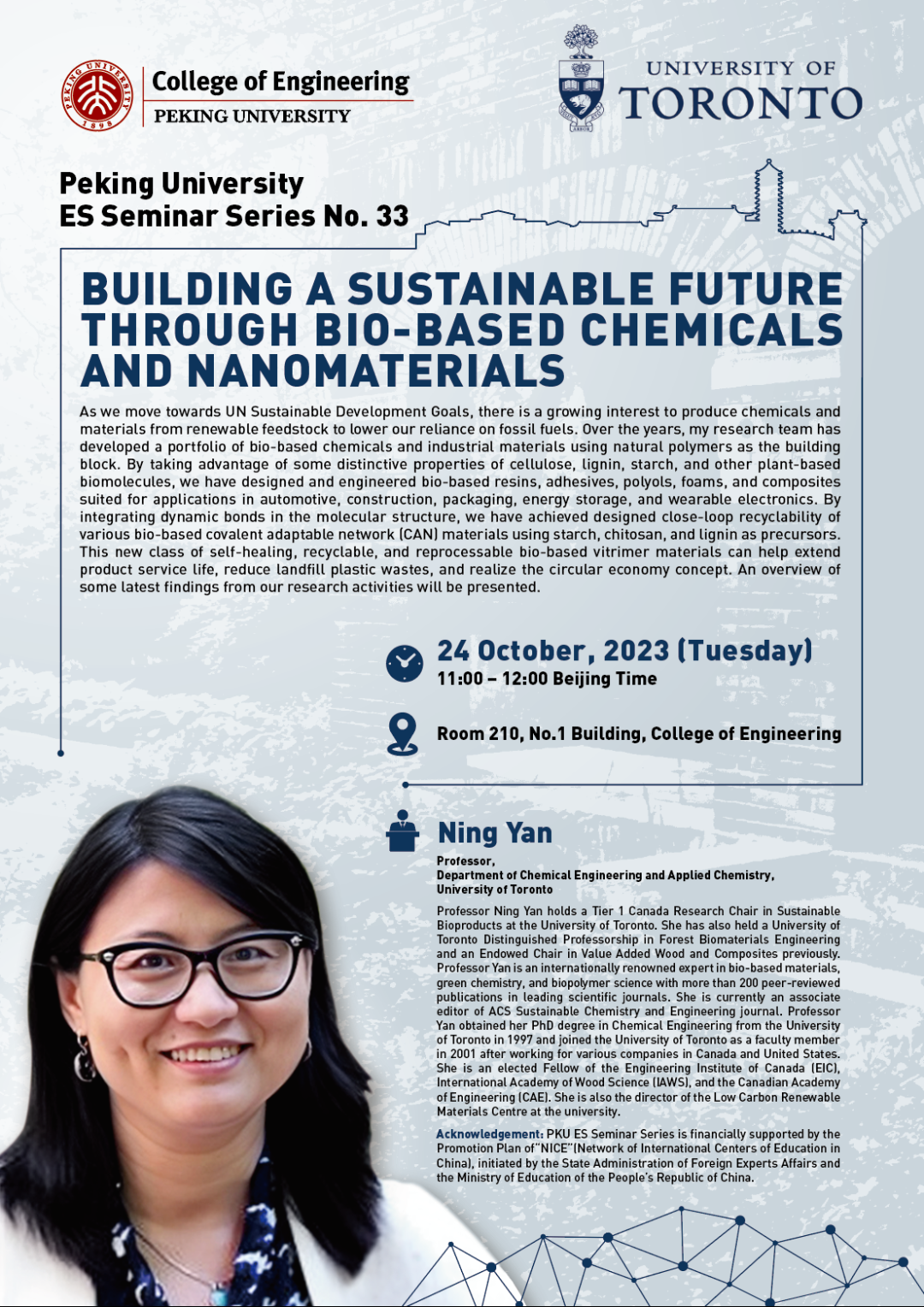Speaker: Ning Yan, Professor, Department of Chemical Engineering and Applied Chemistry, University of Toronto
Time: 11:00-12:00 a.m., October 24, 2023, GMT+8
Venue: College of Engineering, No. 1Builing, Room 210
Abstract:
Professor Ning Yan holds a Tier 1 Canada Research Chair in Sustainable Bioproducts at the University of Toronto. She has also held a University of Toronto Distinguished Professorship in Forest Biomaterials Engineering and an Endowed Chair in Value Added Wood and Composites previously. Professor Yan is an internationally renowned expert in bio-based materials, green chemistry, and biopolymer science with more than 200 peer-reviewed publications in leading scientific journals. She is currently an associate editor of ACS Sustainable Chemistry and Engineering journal. Professor Yan obtained her PhD degree in Chemical Engineering from the University of Toronto in 1997 and joined the University of Toronto as a faculty member in 2001 after working for various companies in Canada and United States. She is an elected Fellow of the Engineering Institute of Canada (EIC), International Academy of Wood Science (IAWS), and the Canadian Academy of Engineering (CAE). She is also the director of the Low Carbon Renewable Materials Centre at the university.
Biography:
As we move towards UN Sustainable Development Goals, there is a growing interest to produce chemicals and materials from renewable feedstock to lower our reliance on fossil fuels. Over the years, my research team has developed a portfolio of bio-based chemicals and industrial materials using natural polymers as the building block. By taking advantage of some distinctive properties of cellulose, lignin, starch, and other plant-based biomolecules, we have designed and engineered bio-based resins, adhesives, polyols, foams, and composites suited for applications in automotive, construction, packaging, energy storage, and wearable electronics. By integrating dynamic bonds in the molecular structure, we have achieved designed close-loop recyclability of various bio-based covalent adaptable network (CAN) materials using starch, chitosan, and lignin as precursors. This new class of self-healing, recyclable, and reprocessable bio-based vitrimer materials can help extend product service life, reduce landfill plastic wastes, and realize the circular economy concept. An overview of some latest findings from our research activities will be presented.
Source: College of Engineering
